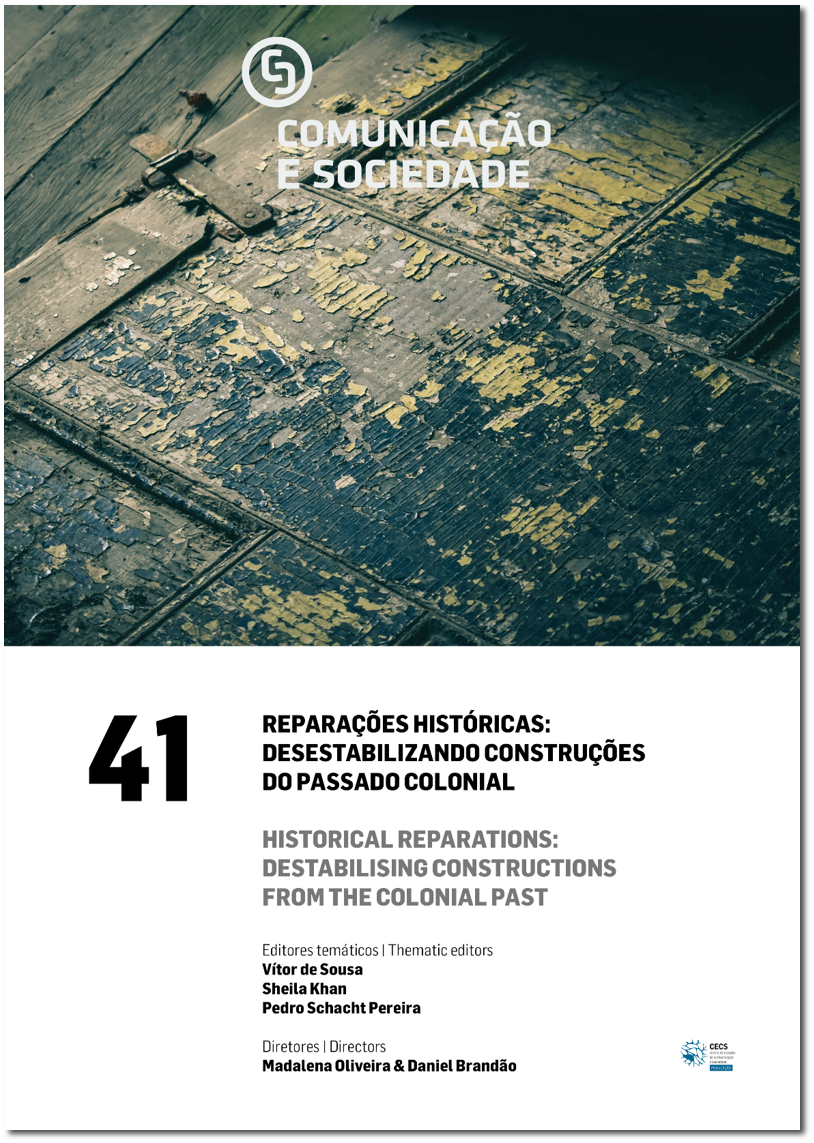Not to Forget: Memory, Power and the Malê Archive in Amado’s Narrative
DOI:
https://doi.org/10.17231/comsoc.41(2022).3727Keywords:
archive, power, Malê, memory, historyAbstract
This article discusses the relations between power, memory, and the archive that surround the Malês revolt, a historical event narrated in Bahia de Todos os Santos: Guia de Ruas e Mistérios (Bahia de Todos os Santos: A Guide to the Streets and Mysteries) by the writer Jorge Amado (1977). It seeks to share reflections, tensions, and intentions that the contact with post-structuralist and decolonial studies can trigger before history, as a movement of insubmission able to potentiate a critique of official thought and the elected narratives. The Malê resistance and endeavor to protect their identity is a power expressed in Amado’s book, which denounces the physical, linguistic, religious, social, and historical violence experienced by the dehumanization of Black bodies and the erasure of the national history of these popular figures who had participation in struggles for freedom and were silenced in the nation’s official narratives. The work developed also aims to understand how the Brazilian novelist approaches these structures forged in the relations of power and control of history and memory used as mechanisms to erase the identities of ethnic minorities on Brazilian soil. The development of this study relied on the theoretical concepts of Derrida (1995/2001), Deleuze (1969/2009), Foucault (1969/2008), Mignolo (2003), Grosfoguel (1996), Quijano (2005), and Reis (1986).
Downloads
References
Amado, J. (1977). Bahia de Todos os Santos: Guia de ruas e mistérios (27.ª ed.). Record.
Augel, M. P. (2006). Prefácio: As três faces da nação. In A. Sila (Ed.), A última tragédia (pp. 7–20). Pallas.
Deleuze, G. (2009). Lógica do sentido (L. R. S. Fortes, Trad.; 5.ª ed.). Perspectiva. (Trabalho original publicado em 1969)
Derrida, J. (2001). Mal de arquivo: Uma impressão freudiana (C. de M. Rego, Trad.). Relume Dumará. (Trabalho original publicado em 1995)
Derrida, J. (2002). A escritura e a diferença (M. B. M. N. da Silva, Trad.). Perspectiva. (Trabalho original publicado em 1967)
Foucault, M. (2008). A arqueologia do saber (L. F. B. Neves, Trad.; 7.ª ed.). Forense Universitária. (Trabalho original publicado em 1969)
Gonçalves, A. M. (2009). Um defeito de cor (3.ª ed.). Record.
Grosfoguel, R. (1996). From cepalismo to neoliberalism: A world-system approach to conceptual shifts in Latin America. Review, 19(2), 131–154.
Iser, W. (1996). O ato da leitura: Uma teoria do efeito estético (J. Kretschmer, Trad.). Editora 34. (Trabalho original publicado em 1976)
Mignolo, W. D. (2003). Historias locales/disenos globales: Colonialidad, conocimientos subalternos y pensamiento fronterizo. Akal.
Nora, P. (1993). Entre memória e história: A problemática dos lugares. Projeto História, 10, 7–28. https://revistas.pucsp.br/revph/article/view/12101
Quijano, A. (2005). Colonialidad del poder, eurocentrismo y América Latina. In E. Lander (Ed.), A colonialidade do saber: Eurocentrismo e ciências sociais. Perspectivas latinoamericanas (pp. 227–278). CLACSO.
Reis, J. J. (1986). Rebelião escrava no Brasil: A história do levante dos malês (1835). Brasiliense.
Sarlo, B. (2007). Tempo passado: Cultura da memória e guinada subjetiva (R. F. D’Aguiar, Trad.). Cia das Letras. (Trabalho original publicado em 2005)
Simões, M. de L. N. (2002). De leitor a turista na Ilhéus de Jorge Amado. Revista Brasileira de Literatura Comparada, 6(6), 177–183. https://revista.abralic.org.br/index.php/revista/article/view/92
Downloads
Published
How to Cite
Issue
Section
License
Copyright (c) 2022 TATIANE ALMEIDA FERREIRA TATI

This work is licensed under a Creative Commons Attribution 4.0 International License.
Authors own the copyright, providing the journal with the right of first publication. The work is licensed under a Creative Commons Attribution 4.0 International License.












